HERMANTOWN, MINN. – The basketball gym attached to Chloe Johnson's house is 64 paces from her bedroom, and her mind is often a whirl of thoughts as she strides past the living room, past the kitchen and through the garage. The distractions in her head disappear when she opens that door and steps onto the court.
This is where 14-year-old Chloe feels free.
Free from worry. Free from intrusive thoughts that can paralyze her. The medical term is "obsessive-compulsive disorder." Her family calls it a "secret storm." Not visible by outward appearances, its cruel impact they know too well.
The daily routines and rituals that go by in minutes for others would throughout Chloe's childhood take her family hours. In addition to OCD, Chloe has been diagnosed with generalized anxiety disorder and a rare childhood condition known as selective mutism. Just leaving the house or talking in public became intense challenges, and Chloe's parents searched for answers, coping mechanisms, help — anything.
Basketball became their anything, and when it entered Chloe's life, in some ways, it saved her. For reasons that everyone, including Chloe herself, find difficult to explain, the storm clears on the court.
"It's my safe place," she says.
In this clarity, there is power.
Today, the 5-11, blue-eyed kid with a long, braided ponytail and sweet nature is a straight-A, eighth-grade student and force for the Duluth Marshall varsity team.
She is regarded as one of the best, if not the best, players her age in the country. She already holds scholarship offers from eight universities, including the Gophers, Wisconsin and Maryland.
Her game is a blend of strength and grace. Her brilliance shines not in being flashy but with skills so exceptionally sharp she makes basketball look effortless. Chloe is not yet in high school, but she ranks among the state's leaders at the varsity level in every statistical category.
Special. Unique. Different. She hears these words often. Chloe will tell you that she is different from other kids, and the tapestry of her young life reveals it.
She is a teenager who doesn't enjoy being on her phone or using social media. A waste of valuable time, she says. She averages only 18 minutes of screen time per day.
She typically doesn't listen to music unless she's on a basketball court, preferably Christian music or a Drake song that doesn't have profanity. She'd rather binge-watch basketball videos than anything on Netflix or TikTok.
Her bedroom features dozens of figurines of NBA players aligned in a row. If one is shuffled out of the order she has arranged them in, she can spot it immediately after entering the room.
Her basketball trainer refers to her as a savant. Her grandparents call her a miracle.
Chloe has learned to manage her OCD symptoms, but she does not hide her challenges from the world. They make her who she is.
Besides, she says, "I think it's cooler to stand up for who you are rather than pretending to be someone you're not."
Chloe Johnson is one of the best basketball players her age in the country – and to an outsider, it may look like the 14-year-old has it all. But her road to success has required overcoming some tough mental health challenges.
Her family thought she was just a shy child, totally different from her older brother, Brooks, who is outgoing and chatty. But by age 4, doctors began suggesting therapy. One therapist mentioned selective mutism as an explanation.
Chloe would talk in the presence of her parents, but few others. She often hid behind her parents when they visited friends or relatives. They would reintroduce Chloe to her grandparents and aunt each time they visited, even though they all live a few miles apart and regularly spend time together. Facial expressions were rare.
Desperate for help, the Johnsons arranged to enroll Chloe in a three-week program at the Child Mind Institute in New York City.
The first sign of hope — a divine intervention, family members say — happened around that same time, when she was 7. The entire Johnson clan had gathered for Thanksgiving dinner at Chloe's grandparents' home. Someone asked if anyone would like to bless the meal.
Chloe shot her hand up, then started to pray aloud with her eyes closed. Her parents and grandparents and uncles and aunts all looked at each other in stunned silence. They had no idea what prompted her. It just happened.
"Sobbing," Chloe's mom, Heather, says. "Goosebumps everywhere."
Soon after, Chloe ordered for herself at a restaurant, another sign of progress. Her parents canceled the visit to the New York facility.
"It was almost like she was trapped and all of a sudden, this little gate opened," Heather says. "Before, she was just a shell."
Heather is professionally trained in mental health care, but even she was perplexed by Chloe's exacting routines.
She had to brush her teeth and hair a certain way. When leaving the house, Chloe needed to know where they were going and why, what she should wear, how they would get there, what she should expect once they arrived. Sometimes, they would start the process an hour before they left to make her feel comfortable.
When Chloe was a first-grader, Heather's sister Steph visited her school daily to provide a calming therapy called dry brushing. She would brush Chloe's arms and legs and do joint compressions to help relieve anxiety.
If Chloe accidentally brushed up against a classmate's jacket, she would insist on going home to change clothes. She would throw away pencils if she made a mistake on an assignment.
Chloe's mind would get stuck on unrealistic thoughts. Her dad Greg handled nighttime duty, which could take two hours as Chloe tried to untangle the day's web before falling asleep.
Her parents prayed for answers and tried different parenting tactics. Nothing provided more than a brief respite. Medication made matters worse.
"We were at our absolute lowest we've ever been in our whole life," Heather says.
Chloe was 10 years old.
Two things changed everything: A coach and a story.
A friend's birthday was approaching in the summer of 2019, and Chloe wanted to make a special book that expressed how much he meant to her. She included pictures of the two of them together and put a lot of thought into her words.
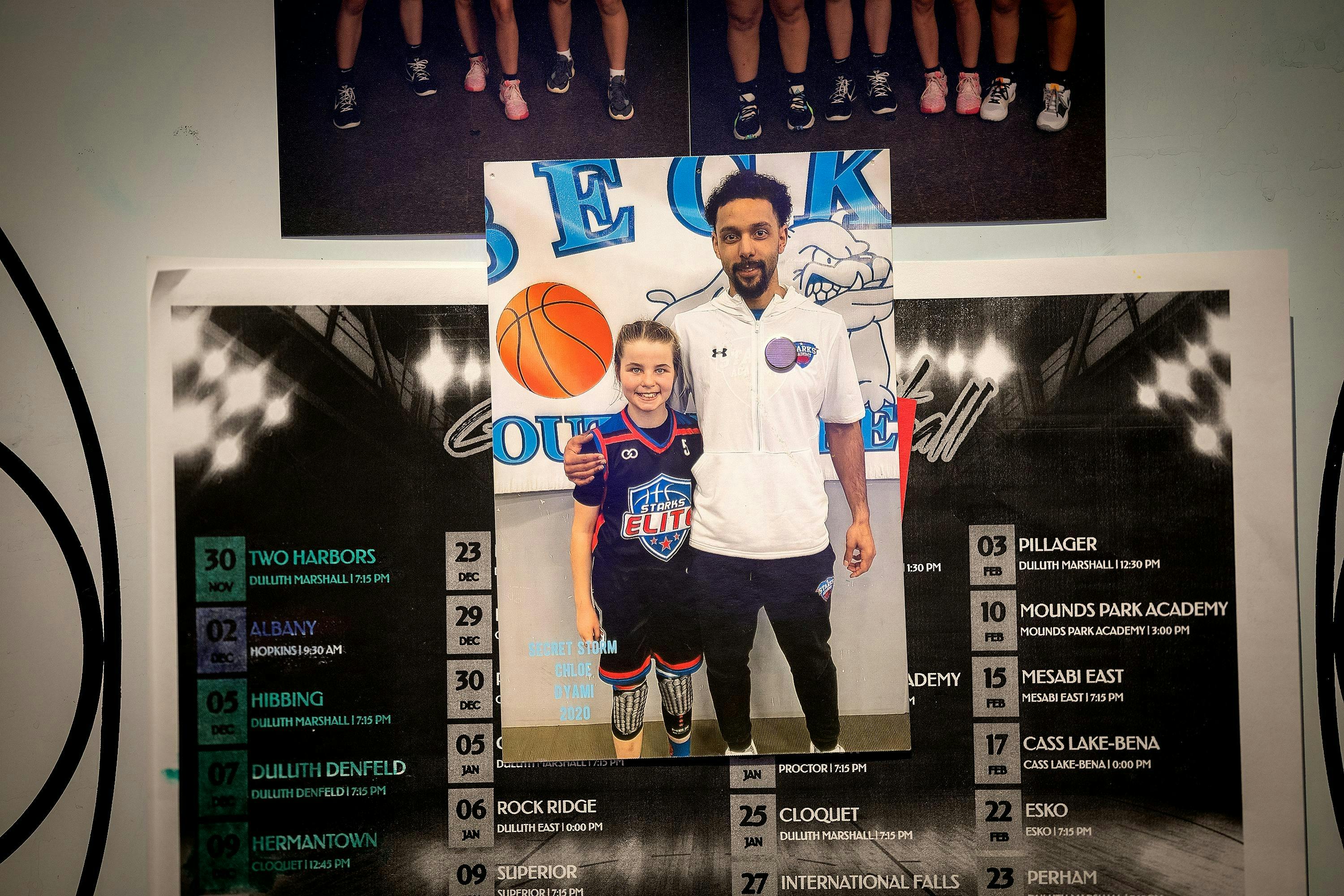
"I make her feel like she's not alone in this world," coach and on-court mentor Dyami Starks said of Chloe. The bond between the pair grew during training and dissecting videos of her favorite players.
The last page had Dyami Starks sobbing.
Thank you mostly for letting me be me. You changed my life and I'm going to make you proud. Thank you for always making me feel important and thank you for believing in me. I'm different and I'm glad you are, too.
Best buds forever,
Chloe #5
"I make her feel like she's not alone in this world," Starks says, sitting on a couch in the Johnsons' living room, still amazed by all that has transpired in the five years since they met.
He grew up in Duluth, a standout at Duluth East before playing Division I basketball at two schools, Columbia of the Ivy League and Bryant University in Rhode Island.
Starks played four seasons overseas, then moved home to help support his mom and younger sister after his dad died in 2015. Will Starks was well known in the Duluth basketball scene as a coach and skills instructor. Dyami picked up the torch.
The Johnsons wanted to find extra training for Brooks when he was in sixth grade and heard about Starks. They brought third-grader Chloe, too.
Gym access in Duluth is so scarce that Starks met them on a racquetball court in the downtown YMCA. With no hoop, confined to a cramped space, they worked on footwork and dribbling and hand-eye coordination using tennis balls.
Chloe didn't say a word. She treated every drill with a seriousness that was astonishing for someone so young. Starks was struck by how hard she worked.
The Johnsons kept going back. Starks could tell something was different about Chloe. On the court, she was strong and fluid in her movement. She worked tirelessly at everything he threw at her. She attacked drills with purpose, as if needing to perfect them.
They practiced wherever they could find gym space, and when nothing was available, they'd meet at the racquetball court. Inside those towering white walls, with her parents watching from a balcony above, Chloe's fire was lit.
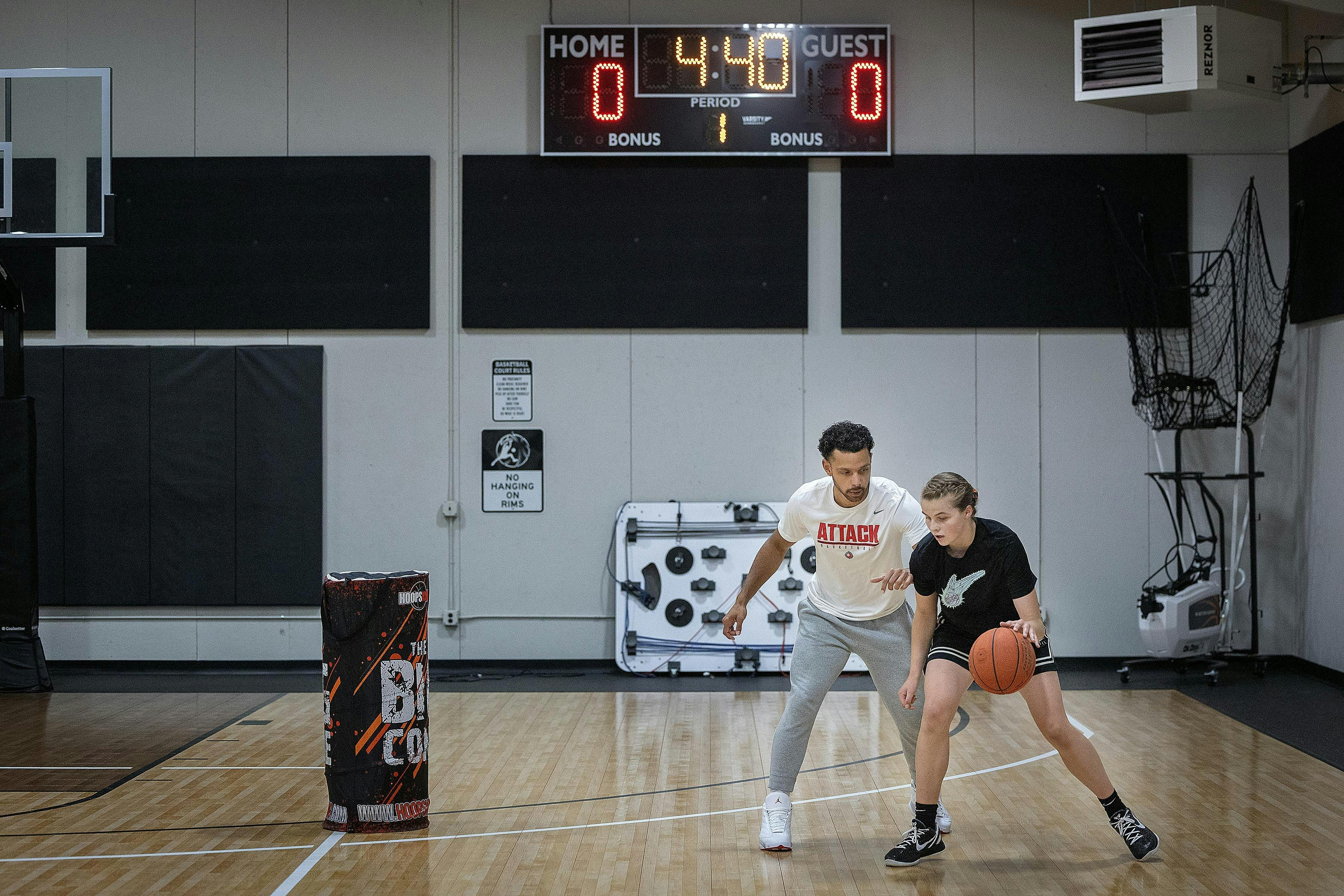
Starks became so integral in her daily existence that Chloe's parents essentially welcomed him into their family. He has her repeat drills — 15 times if necessary — until she gets it right.
The bond between Chloe and Starks grew during training and dissecting videos of her favorite players, usually Paige Bueckers, the Hopkins High legend.
Chloe insisted on training with Starks every day, sometimes twice. Any break in the routine made her feel uneasy, even on family vacations. Starks, 31, became so integral in her daily existence that Chloe's parents essentially welcomed him into their family.
Why him? That's a question he finds hard to answer, beyond their mutual love of basketball. Perhaps it's because he's supremely detailed and focused like Chloe. He frames his place in her life on a level deeper than being a coach or mentor.
"I can crack her code," he says.
But away from basketball, OCD kept an unrelenting grip on Chloe and her family. By fourth grade, not long after Starks came into her life, Chloe's challenges reached a point that felt untenable. Then, Heather's sister Steph called one morning in February 2019.
A profile of Jake Sullivan, who broke the Minnesota all-time scoring record while wrestling with OCD as a Tartan High star, had appeared in the Star Tribune. In it, Sullivan shared his struggles and the steps he took to manage his condition. Steph encouraged her sister to contact Sullivan, and she left him a voicemail at his work.
Sullivan called the Johnsons later that day. He listened and provided guidance on how to handle Chloe's symptoms based on his own experiences. It would require firm parenting, tough love.
He told them to expect hard days followed by harder days, but that a healthy, productive, happy life with OCD is possible. He told the Johnsons that he always would be available to them.
Dr. Sasha Zagoloff, a licensed child psychologist at M Health Fairview, said that while childhood OCD is rare, the impact can "really significantly impair" an entire family when a person's habits become compulsive.
"Oftentimes, when we're talking about kids," Zagoloff said, "loved ones are a part of the ritual."
Sullivan suggested a coping strategy when Chloe's mind became consumed by an unwanted thought: Picture a trash can and take whatever is sidetracking you and imagine throwing it into the garbage. Chloe still uses that tactic today. If she's feeling anxious about something, she will tell herself to throw it away.
Little by little, life improved as Chloe learned to manage her symptoms. Her OCD became less debilitating.
"Did that article change Chloe's life?" Heather says. "It saved her life."
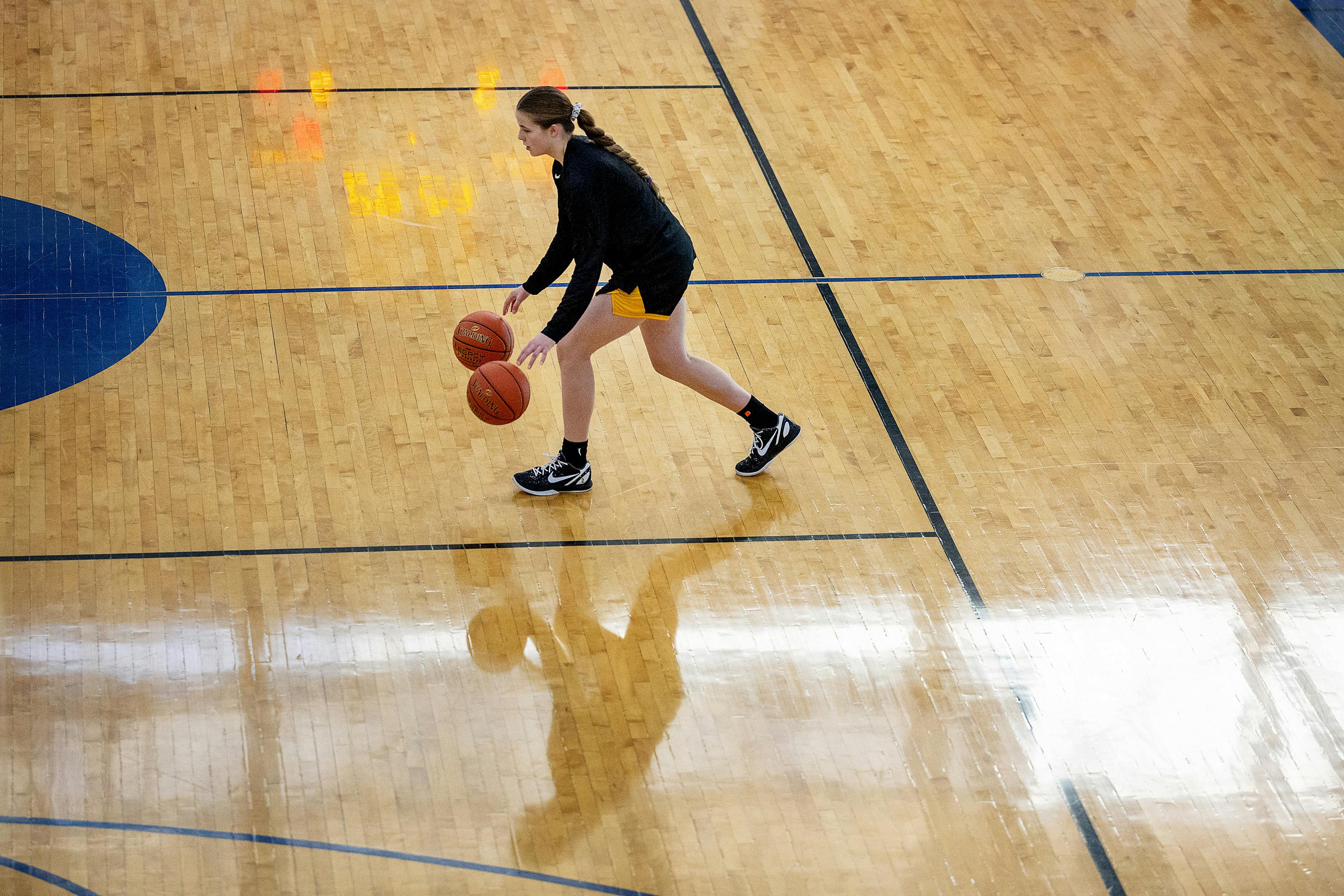
Chloe took to the court to warm up with two basketballs before a game vs. Albany. When asked about her ideal day, Chloe said basketball followed by a basket of wings from Buffalo Wild Wings.
A steady rain falls in this western suburb of Duluth on a cool, gloomy August morning. Eighth grade starts in two weeks. The gym at the Johnson home is quiet except for the sound of Starks' voice and a basketball bouncing off the floor.
The focus of this workout is layups. Chloe had missed a few at an AAU scrimmage over the weekend. For the next 50 minutes, that's all they work on. Layups.
Her body has changed because of rigorous strength training, so they go over footwork, touch, ball placement on the backboard, body control. Starks stresses the importance of having "solid equilibrium."
He takes videos of her layups on his phone, then stops the drill to provide visual reinforcement. Their meticulous workouts aren't done for publicity or Instagram approval. Chloe only cares about improvement.
"You're not going to be at your best if you're being passive," Starks says in a forceful tone, standing near a sign on the gym wall that reads in all-caps: "NO TIMID GIRLS ALLOWED."
This gym is their laboratory — and it's a hoops lover's paradise.
The court is a tad smaller than regulation size but is still large enough to hold five-on-five games. There is a scoreboard, shooting machine, lockers, a device that measures vertical jump, an arcade NBA video game and a big-screen TV to watch video of workouts.
The Johnsons sold their former home and built a new house with the gym during the pandemic because they recognized the importance of basketball in their kids' lives. Brooks is a Division I recruit and one of the state's leading scorers as a Marshall junior. The gym serves as a home inside their home.
"Chloe's mental health largely depends on her ability to be in a situation where she can play basketball," Greg says. "This is where she feels calm and safe."
Their house has become a popular gathering spot for hoopers along the North Shore. Groups of kids are constantly here for workouts or pickup games, rummaging through the snack drawer in the kitchen on their breaks.
Chloe and two friends had a two-hour training session with Starks in early August. One of those friends was former Duluth Marshall star Gianna Kneepkens, an All-America at the University of Utah. Kneepkens and Chloe took turns guarding each other, then sat with Starks in front of the TV to evaluate their work.
Starks and Chloe use code words as if they have their own language. He peppers his instruction with "Barkley" or "Kobe spots" and Chloe knows exactly what he wants. Sometimes they finish each other's sentences. They leave each other long voicemails and text messages about something that came up in a workout that day.
"He just knows the way I think," Chloe says. "I think he also kind of thinks the same way I do. We know what the goal is and we're going to get to the goal."
His coaching is direct. Nothing sugarcoated. He makes her repeat drills — 15 times if necessary — until she gets it right. There are occasionally tense moments between them.
"It's not always happy," Greg says. "But the love part is always there."
And if his daughter didn't have Starks in her life?
"I don't even want to know what that looks like," Greg says.
Chloe leaves herself little free time outside of basketball. Her days consist of individual workouts, group workouts, film study and strength training at an ETS Performance center. When she shoots on her own, she tracks her shots to see if she can beat her previous percentages. The idea of goofing around on a basketball court without purpose mortifies her. Friends say she would spend 24 hours a day in a gym if permitted.
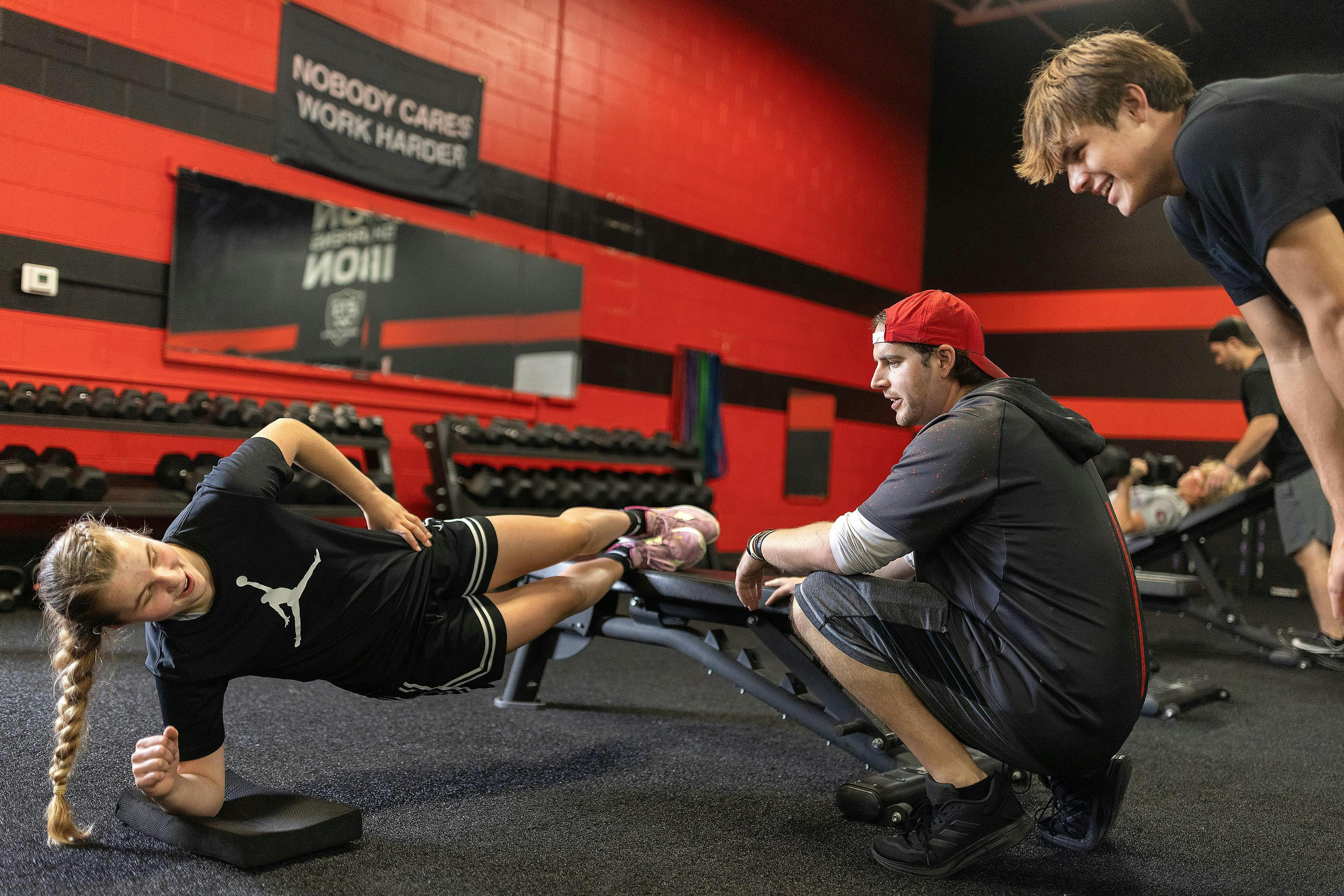
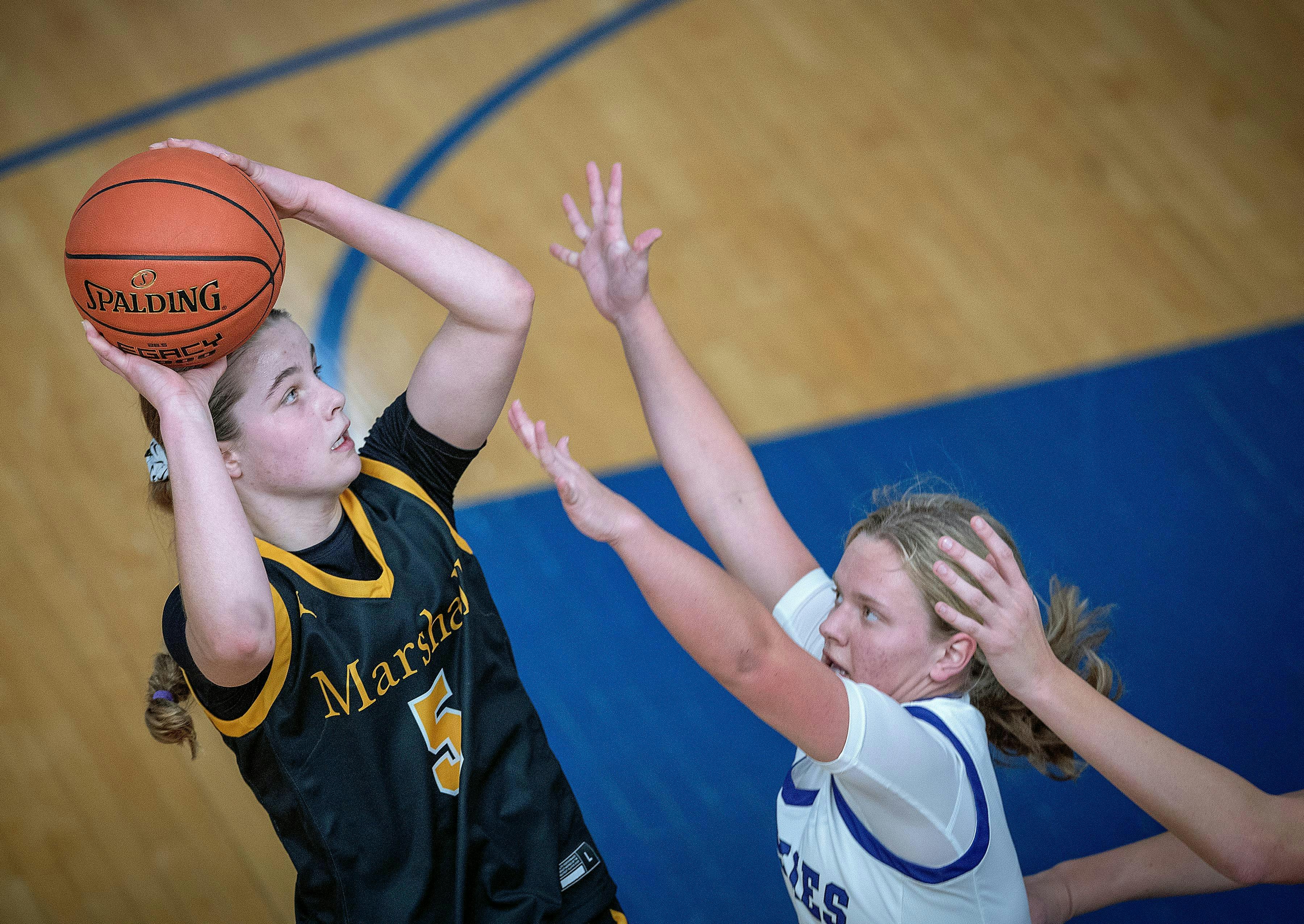
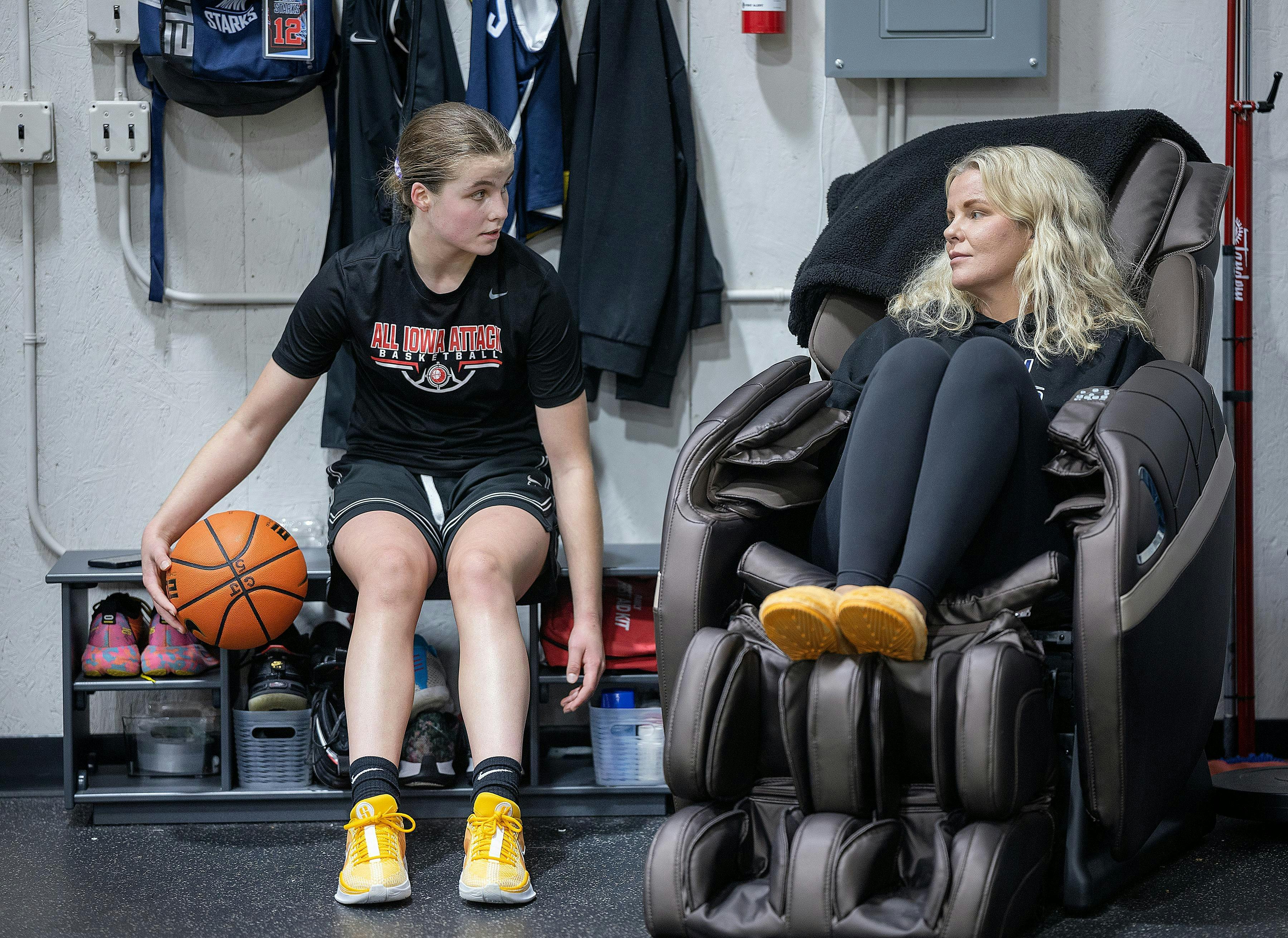
Chloe's days often consist of workouts, film study and strength training at an ETS Performance center, where her brother Brooks (top), a Division I recruit himself, teased her as trainer Kyle Hall assessed her planks. Even in her downtime before a day of practice, Chloe had a basketball in hand while taking a moment to chat with her mother, Heather, in their home gym.
Ask her to describe an ideal day, Chloe lists a schedule filled with basketball and a basket of wings from Buffalo Wild Wings for dinner.
Identifying her strength as a point guard is difficult because she excels at everything. Shooting. Passing. Ball-handling. Defense. Starks calls her basketball intelligence "better than anyone I've ever known."
"With basketball," he says, "literally nothing comes in her head. It's just, 'I'm out here playing.' It's like an artist."
Another workout concludes with Chloe shooting free throws. Her parents and Starks chat off to the side. The idea of burnout is mentioned to the group and whether they worry about that.
"If there is a kid that is being driven by their dad or by their trainer or driven by fame, I think you do need to tell them to stop and take a break," Heather says. "She drives herself. It's almost like telling her, don't be you."
Says Starks: "This is her break. Everything else outside of basketball is work. She would burn out if she couldn't play four hours a day. It's the opposite of burning her out. I've never seen a kid like that."

Chloe focused on her coach's words along with teammates at halftime vs. Albany in Hopkins. Assistant coaches from five Division I programs watched the eighth-grader play in the Dec. 2, 2023 game.
Tip-off is at 9:30 a.m. on the first Saturday of December. Marshall's second game of the season is against Class 2A powerhouse Albany in a tournament at Hopkins High.
Assistant coaches from five Division I programs are scattered across the gym. Minnesota. Maryland. Marquette. Wisconsin. Iowa State. All wearing their school attire. All here to watch the eighth-grader.
Chloe looks dynamic in a loss with seven three-pointers, 28 points, nine rebounds and eight assists. A typical boxscore for her.
The coaches in attendance know how good she is. Four of the schools already have offered her scholarships. Her first offer came in sixth grade.
She joined Marshall's varsity as a seventh grader and led the team in scoring, rebounding, assists, steals and blocks. The curtain lifted entirely this past summer.
Chloe began the offseason AAU circuit playing at age 13 for the MINN Starks team, coached by Dyami. In June they faced All Iowa Attack's secondary 17U team, which featured three Division I signees and a few Division II recruits.
Chloe was the best player on the floor, scoring 40 points.
Dickson Jensen, who founded the nationally renowned All Iowa Attack program and coaches the top team, was watching. He kept thinking to himself, "Who is this kid?"
Jensen met Chloe and her parents the next day. He watched Chloe play again, and she put on another dazzling display. Jensen invited Chloe to practice with his team the following weekend, which included a scrimmage against players from Drake University. Chloe fit right in.
"I could tell from Day 1 that she is special," Jensen says.
He felt comfortable enough in his evaluation that he did something he had never done: He put a rising eighth grader on his top team. Iowa's Caitlin Clark, now a mega-star in college basketball, joined the 17U team the summer before her freshman year.
Jensen considered two criteria in his deliberations: Could Chloe handle herself defensively? Could she process the game mentally at that level of competition?
"For most seventh graders, neither one of those occurs," Jensen says.
All Iowa Attack made it to the national championship game of the Nike-sponsored circuit in Indianapolis. Chloe held her own competing against some of the top high school seniors in the nation.
A secret no more, college coaches began contacting Starks to arrange phone calls with her, per NCAA rules. Chloe spoke with Gophers coach Dawn Plitzuweit within 24 hours of her being hired to replace Lindsay Whalen.
Starks advises every coach inquiring about Chloe: Don't talk to her as if she's a normal 14-year-old kid. Discuss basketball like you would with college players. Her favorite conversations with coaches are high-level, sophisticated ones that go deep on strategy.
Sometimes Heather will listen and can't help but smile. The kid who barely spoke as a little girl will chat for hours with college coaches without any impediment.
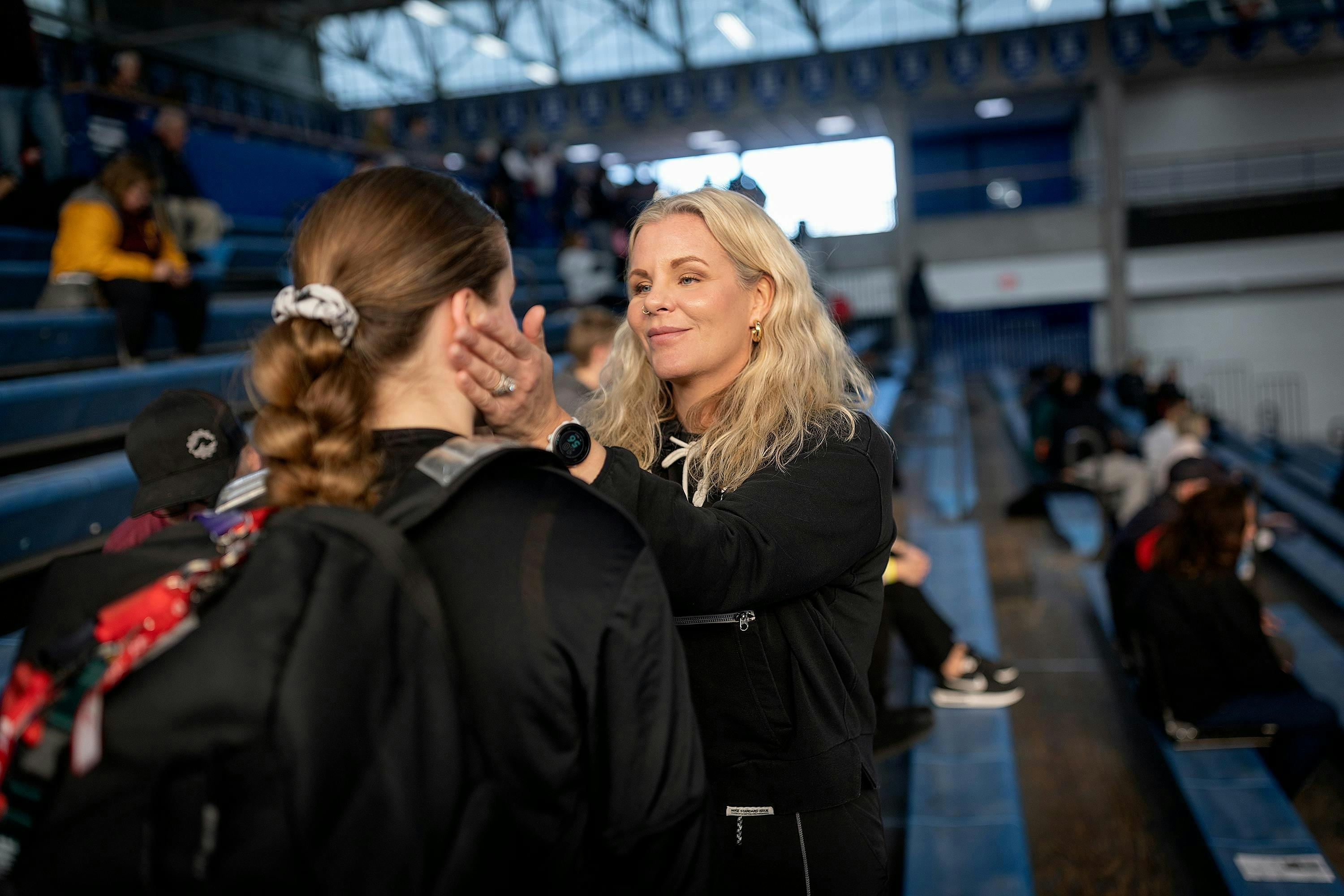
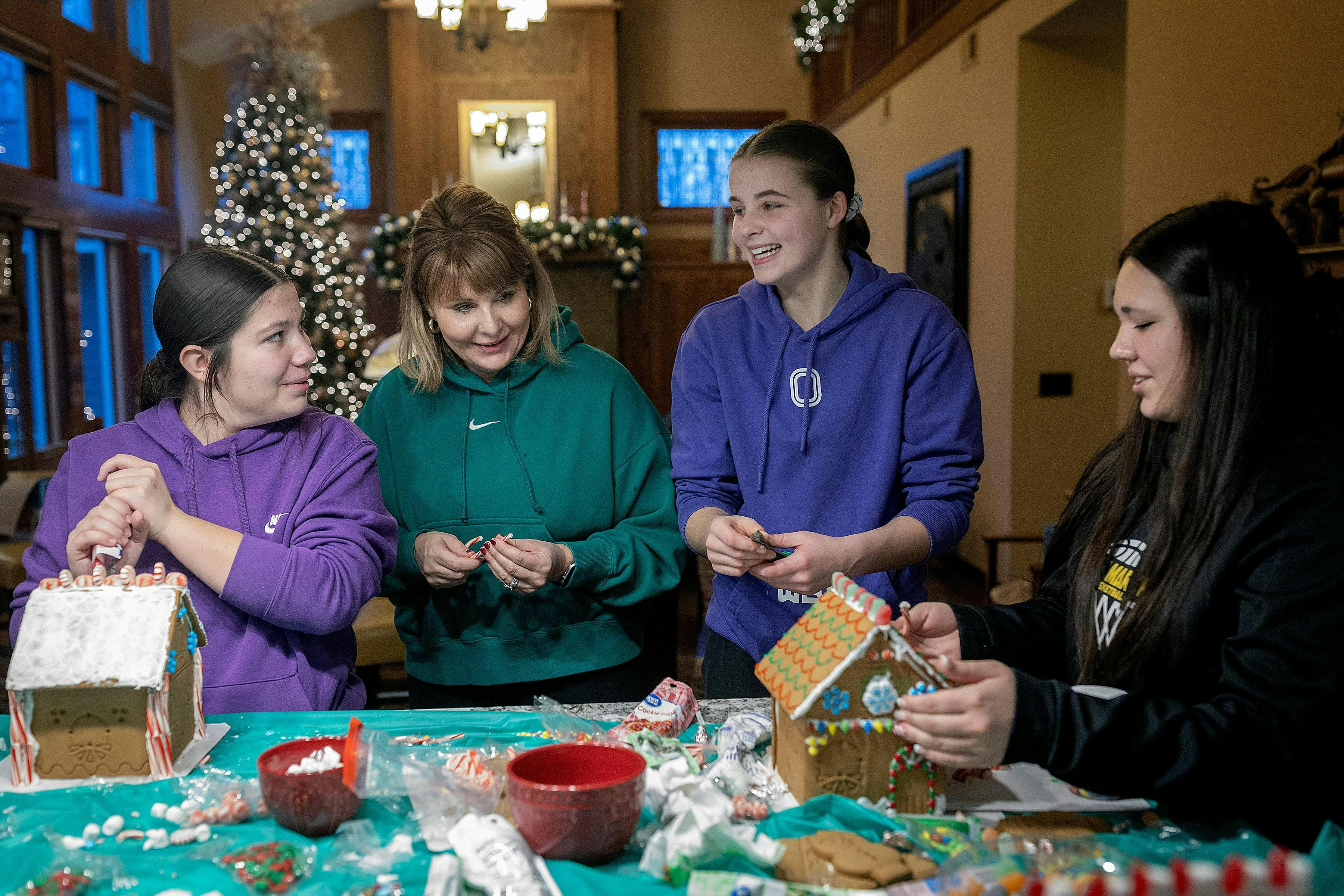
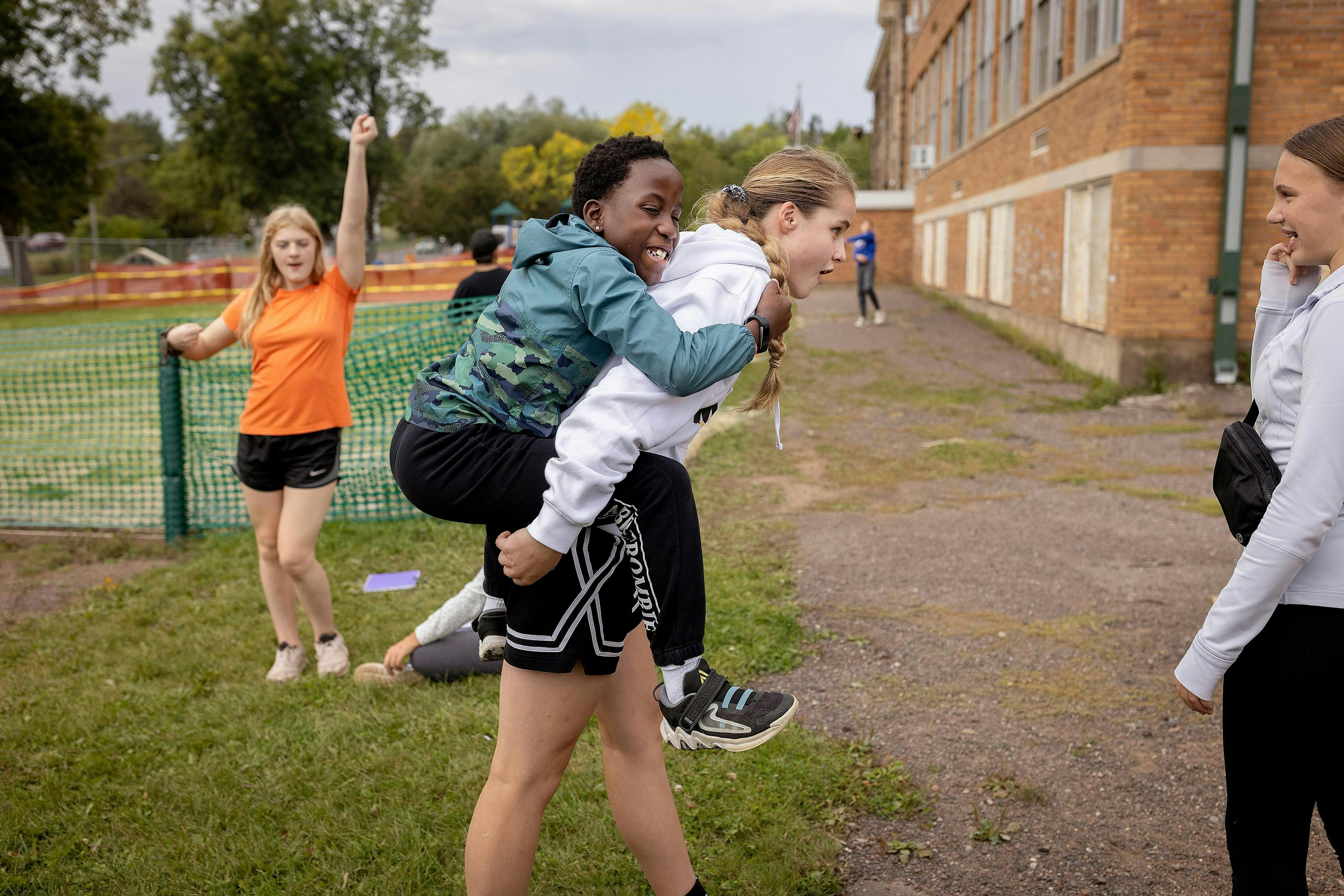
Away from the court, Chloe has come out of her shell since her younger years, when her obsessive-compulsive disorder symptoms were often debilitating. Clockwise from top left, Heather comforted her daughter after a tough loss to Albany, Chloe made gingerbread houses with friends and family, including her aunt Steph Johnson, and she played with her young cousin Sam Johnson, whom Chloe considers a best friend.
Gary and Marcia Doty walk into a Perkins near downtown Duluth and a server hustles over to greet them. Other patrons stop them for a quick hello. If it feels like the mayor has just arrived, well, it's because he did. Gary served as Duluth mayor for 12 years, ending in 2004.
To Chloe, he's simply "Opa." Marcia is "Oma." The grandparents who refer to her as a miracle.
Aunt Steph — called "Ti-Ti" by Chloe — joins the group for lunch, which starts with a prayer from Gary, whose voice quivers with emotion when he mentions Chloe in his blessing.
"She's still a kid," he says later in the meal. "We have trouble remembering that because of her basketball level and her maturity, but she is."
The family encourages her to do kid things outside of basketball. One day this summer, Chloe's 11-year-old cousin Sam wanted to find bugs. She helped by lifting rocks for him to look under.
Oma and Opa marvel at their granddaughter's aptitude for putting Lego sets together. Lay an intricate set on the floor and she'll have it built in no time.
Jensen challenged players in the All Iowa Attack program this summer to put down their phones, get off social media and have face-to-face interactions. He suggested they ask their parents to play a game of Yahtzee. Chloe accepted the assignment — because she never ignores any assignment — and now she and her dad play Yahtzee most nights. Heather often hears them giggling during their time together.
Her support network has constructed a tightly woven cocoon to protect Chloe as she navigates life as an athletic prodigy dealing with mental health challenges. Three generations of Dotys live within 4 miles of one another. Ti-Ti homeschooled Chloe in preschool. Chloe calls her cousin Sam her best friend. Dinners involving the entire family are frequent events.
The pressure on star athletes being recruited can feel suffocating. Chloe's timeline in that space started before she reached her teenage years, all while still learning to manage her OCD and anxiety. Her circle makes sure she never feels alone.
"I think that we will never truly understand how amazing and amazingly hard it is for Chloe sometimes," Steph says.
She attends a small private school that prioritizes her needs. Chloe finishes the school day two hours earlier than other students because fatigue can exacerbate OCD symptoms. She is permitted to carry her phone with her to class to remove anxiety about whether she would be able to reach her parents if needed.
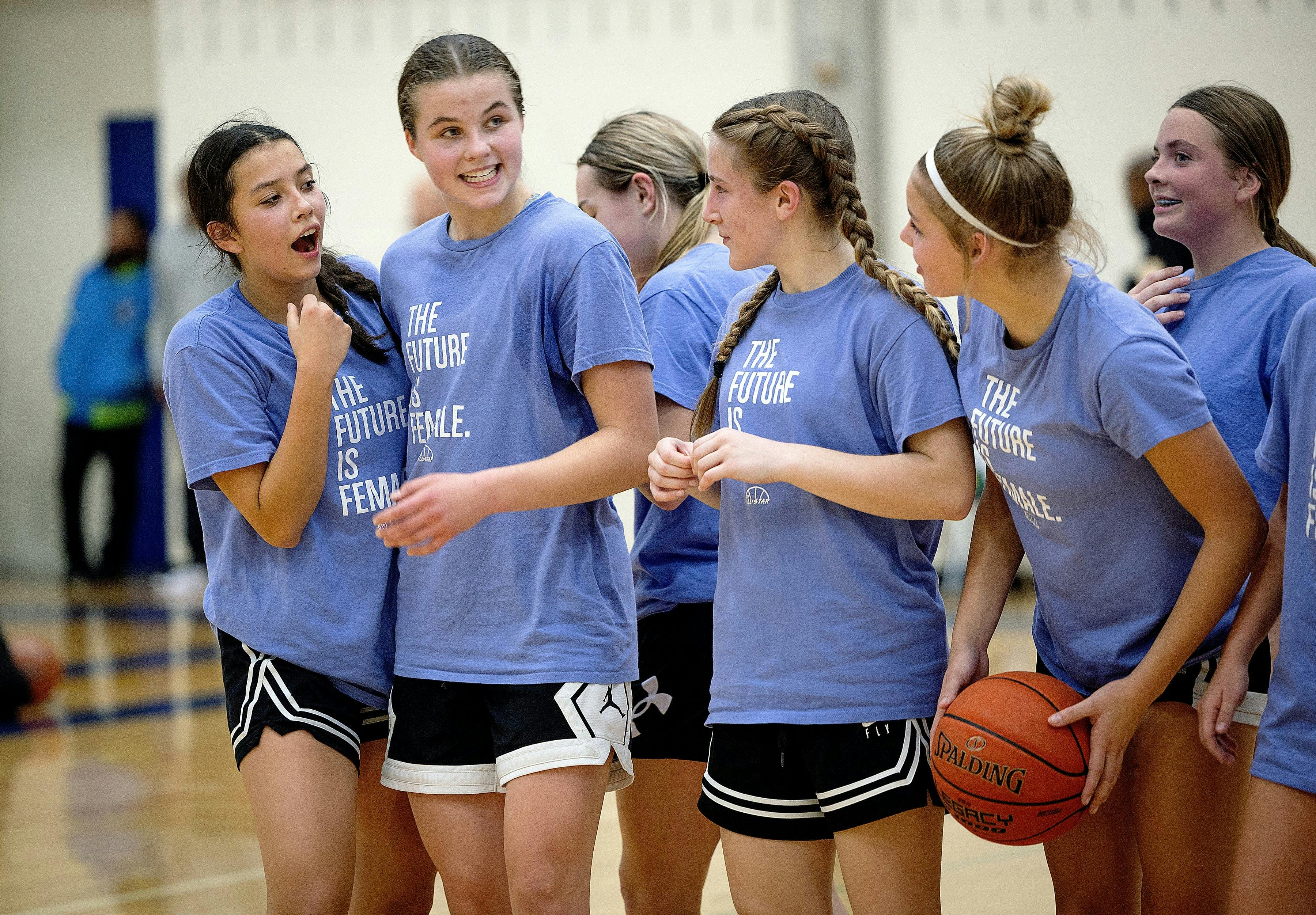
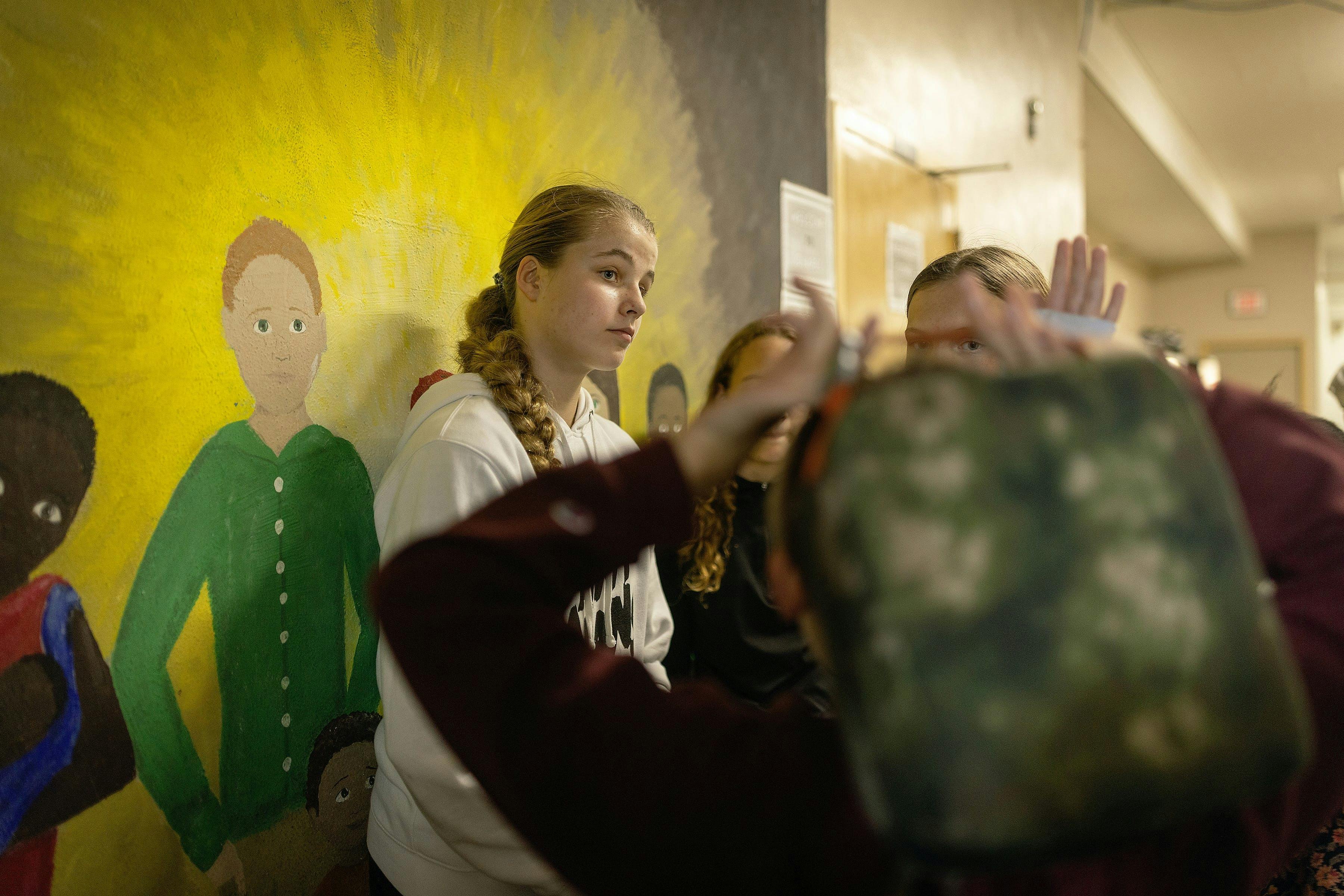
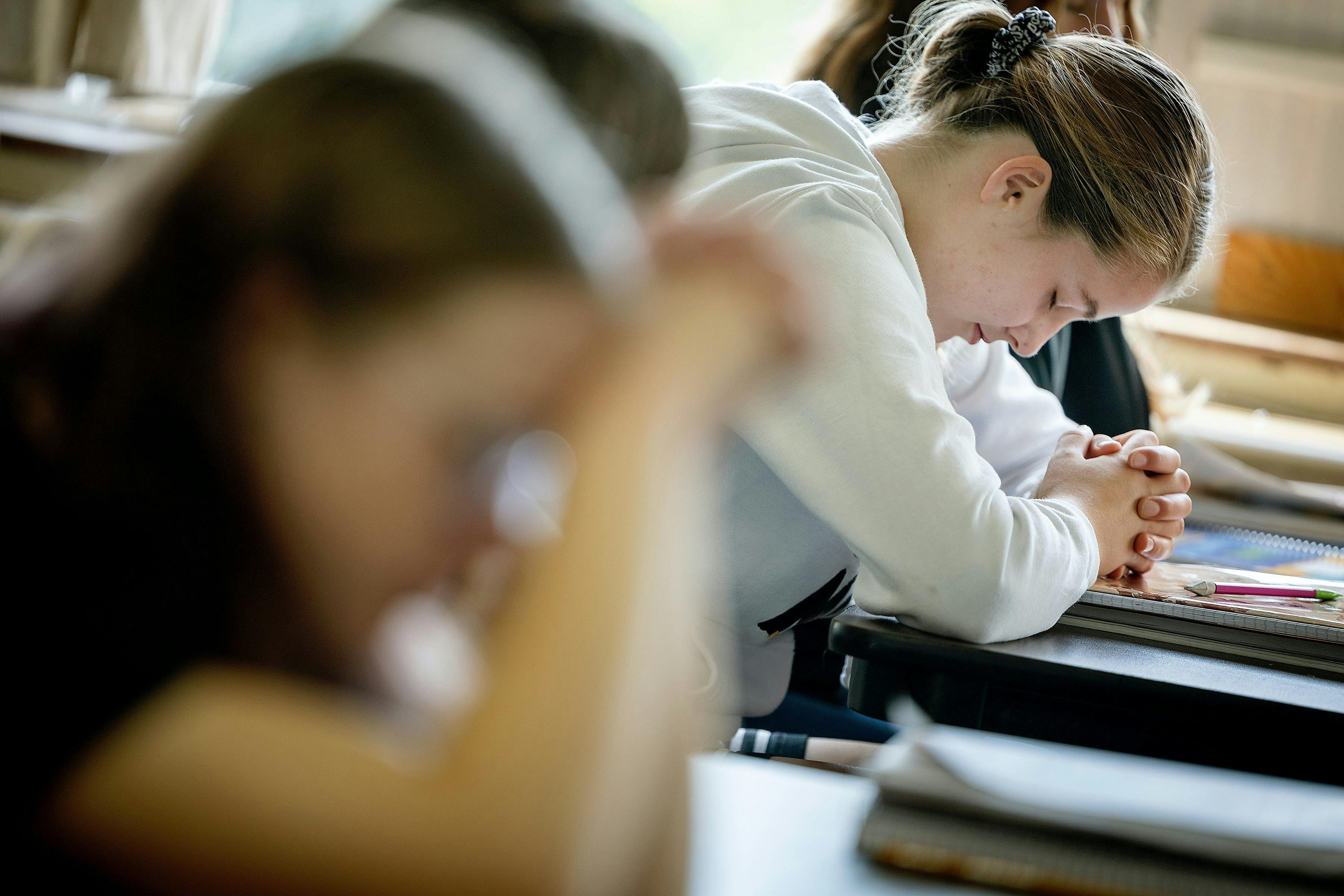
Chloe has found clarity and peace in different places — from her faith to the basketball court — and has benefited greatly from the support network she has found through her love of the game to help overcome some of her mental health challenges.
Friendships can be challenging because her day is so regimented and she's normally around much older girls. Even though Chloe spends the day in a different school building than her Marshall teammates, they make sure to keep close tabs on her to make her feel included.
"I've always felt it was my job to protect her and be like her second mom," says sophomore teammate Mariah Lucero.
Routines remain a constant presence in Chloe's daily life, particularly in the form of counting rituals. She has a certain number of times she brushes her hair when getting ready, a pattern for closing apps on her phone before a game.
Time is meticulously calculated to the minute. She will tell her parents that she will be ready at 3:27 p.m., never rounding off to 3:30.
If she loses count of her reps in a workout drill, she always starts over at zero, even if that means she will lose the competition and be required to do push-ups or burpees. Better to suffer a consequence than be wrong on the count.
OCD is not a valve that shuts off completely, but Chloe and her family understand far more about the storm now and how to weather it.
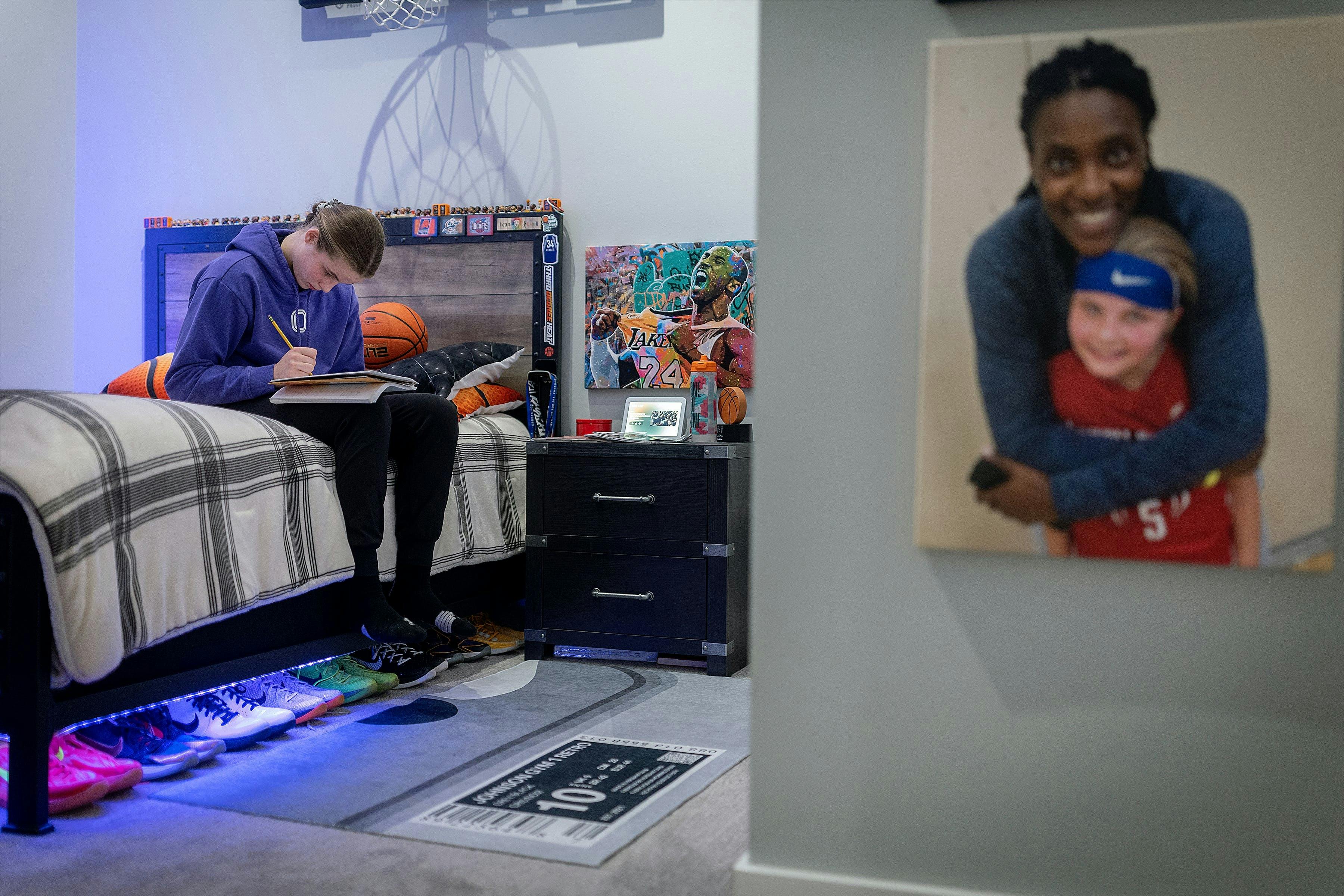
During her hardest moments, Chloe fills the pages of journals in her bedroom adorned with basketball memorabilia, including a photo with Lynx legend Sylvia Fowles on her wall.
During her hardest moments, Chloe fills pages in journals. One night, she put pencil to paper to explain her willingness to share this story.
I want people to know I have OCD and I have to work through it every day, but it is possible to be able to have control of it and it can be managed ...
Basketball has helped me through everything I've been through and it's my safe place. I don't play for highlights and write-ups. I play because I love it and when I play my brain stops worrying and just feels free …
I also think it's OK to talk about your struggles because everyone has struggles and you can help other people who are going through the same things.
She has found clarity and peace in different places. Her faith. A basketball court. A coach. An army of supporters who'll do anything for her.
In many ways, her journey is just beginning. She is confident in who she is and where she is going. She'll never pretend to be someone she's not. It's way cooler to be Chloe Johnson.